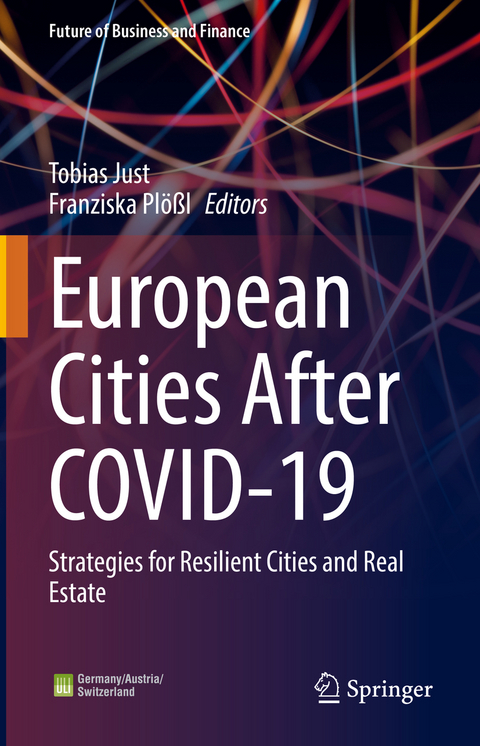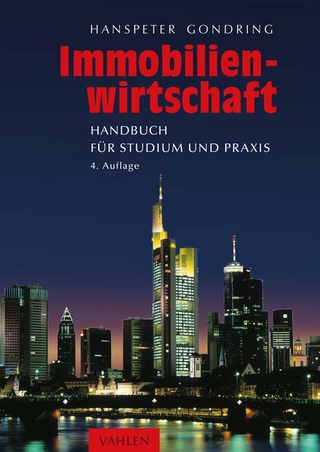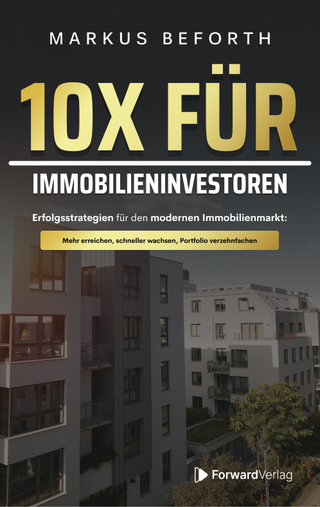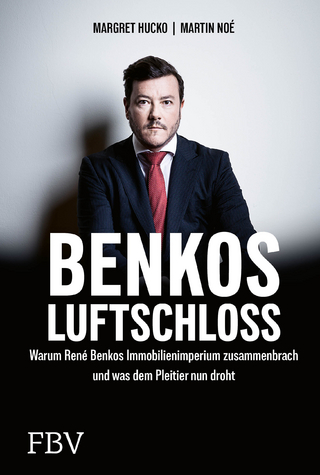
European Cities After COVID-19
Springer International Publishing (Verlag)
978-3-030-89787-1 (ISBN)
This book develops key messages for city stakeholders: how can cities and properties adapt to this crisis and how can public and private actors help to make cities more resilient in the long run. The book is addressed to actors from the real estate industry and the city, to project developers, architects, planners, engineers, financiers, investors and asset managers - and to everyone who lives and works in cities.
Tobias Just is Managing Director at the IREBS Immobilienakademie (Germany) and Professor of Real Estate at the University of Regensburg (Germany). Prof. Just has published more than 200 papers in professional and academic journals and authored or edited several books on various real estate topics. Until 2021 he was President of the German Society of Property Researchers and is the editor of the ZIÖ - the German Journal of Real Estate Research. In 2018, Tobias became Fellow of the RICS by nomination.
Franziska Plößl is researcher and PhD-candidate at the IREBS/University of Regensburg (Germany). Franziska completed her M.Sc in International Real Estate as best in class in 2017 at the Florida International University (USA), and completed a second M.Sc in Real Estate at the University of Regensburg in 2018. She has published on various real estate topics.
Strategies for Resilient Cities and Real Estate: Challenges for European Cities After the COVID-19 Pandemic.- Implications for Urban Development: Urban Planning Aspects of the Resilient City.- The Health Equity Imperative and the Role of the Built Environment.- Lessons from the Cholera in Paris and Hamburg.- Urban Form, Neighbourhood Governance, and Real Estate Management: Chinese Cities Fighting a Pandemic.- How COVID-19 Is Changing Mobility Behaviour and What That Means for Sustainable Urban Transport.- The Preservation of Economic Structures as a Main Challenge of Urban Development.- Revisiting the Economic Effects of Density in the Wake of the COVID-19 Pandemic.- Density and the Spread of COVID-19 in Cities - Lessons from the United States and the United Kingdom.- The Future Viability of City Networks.- Implications for Housing and Hotel: Cities to Live: Living in the City - Or Rather Nearby?.- Is the COVID-19 Pandemic Accelerating the Path to Smarter Cities?.- The Urban Neighbourhood of the Future Is just one Step Away.- The Challenge for Developers to Build Attractive Places.- Implications for Office and More: Cities to Work: The Flexible Office Space.- The Future Workplace - Reimagining the Office for the 21st Century.- Office Work in Post-pandemic Cities and the Importance of Population Density.- It's About Responsibility, Technology and Culture.- The Screen Cannot Replace a Sense of Community.- Implications for Retail and Logistics: Cities to Supply: Consumer Cities Under Pressure to Change.- The Importance of the Food Retail Industry for Cities After COVID-19.- The Future of Urban Logistics.- Ten Key Messages for Resilient Cities and Real Estate: Final Remarks: Ten Key Messages.
| Erscheinungsdatum | 26.02.2022 |
|---|---|
| Reihe/Serie | Future of Business and Finance |
| Zusatzinfo | X, 246 p. 50 illus., 44 illus. in color. With Translated from the original German-edition: Die Europäische Stadt nach Corona, edited by Tobias Just and Franziska Plößl. Copyright © Springer Fachmedien Wiesbaden GmbH. All rights reserved.. |
| Verlagsort | Cham |
| Sprache | englisch |
| Maße | 155 x 235 mm |
| Gewicht | 541 g |
| Themenwelt | Betriebswirtschaft / Management ► Spezielle Betriebswirtschaftslehre ► Immobilienwirtschaft |
| Wirtschaft ► Betriebswirtschaft / Management ► Unternehmensführung / Management | |
| Schlagworte | city planning • Covid-19 • Flexible building typologies • Inner city planning • real estate markets • resilient cities |
| ISBN-10 | 3-030-89787-7 / 3030897877 |
| ISBN-13 | 978-3-030-89787-1 / 9783030897871 |
| Zustand | Neuware |
| Haben Sie eine Frage zum Produkt? |
aus dem Bereich


